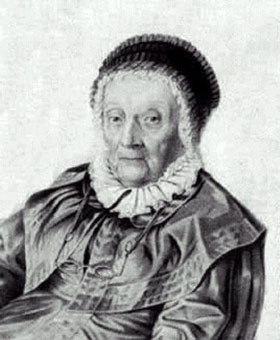I'd like to take a break from identifying cell organelles (yeah!...) to talk about the marvelously ironic country that is the United States of America. Flipping through the Wikipedia article on 31 January, you will discover that, on this day in 1865, the "United States Congress passes the Thirteenth Amendment to the Constitution of the United States, abolishing slavery", yet on this day in 1876, a mere eleven years later, the country "orders all Native Americans to move into reservations". Huh.
America is a very interesting country. It's only been officially independent since 1776, yet in that relatively short time, it has risen to become the world's greatest superpower. (You could argue for days, I am sure, as to whether this is a title it retains, but it is very true to say that it was the dominant world power for almost all of the twentieth century.) A melting pot of many, many different races and religions, and containing immigrants who often arrived incredibly poor, America in the eighteenth and nineteenth centuries had the potential to completely fail as a democracy, simply because of its diversity. From some countries, you had Catholics escaping persecution, other countries, Protestants and others still Jewish (and that's just counting the major European religions), yet these incredibly different groups of people managed to exist side by side once they were in America.
The sheer size of the country probably had something to do with this. There was enough room, if you so required, to pack up and move thousands of miles away from the people who were annoying you, and still be assured of land and space to call your own when you arrived there, unlike in the highly overcrowded European nations. Often, new states sprung up where people of the same religion congregated - Pennsylvania, for example, was founded (first as a colony, then later as a state) by William Penn, a very prominent Quaker leader, and the religion dominated the state's governance for decades; Utah was founded by Brigham Young, a leading Mormon and has retained that connection to the Mormon religion to this day.
Though there were instances of segregation such as these, there are other examples of many different nationalities and creeds living side by side. New York, for example, had a very diverse population simply because it was home to the largest immigration center in the country; California after 1848 had an equally diverse population because of the myriad prospectors arriving from all over the world hoping to try their luck in the gold rush.
This is not to say that the US was not without its problems. Slavery was not formally banned in the country until 1865, whereas most European countries had banned it much earlier in the century (Britain, for example had banned in 1833). Even after this point, treatment of black people, particularly in the Southern states, was often terrible - the so-called 'Jim Crow' laws continued right into the twentieth century, and the Civil Rights Movement was still (understandably) very active until over a century later, when ethnic minorities were finally granted equal rights.
Their treatment of the Native Americans was equally despicable - the forcible moving to reservations of the peoples was just the beginning of the end, with many "savages" having been treated as second class citizens since Europeans had first started coming over to the country.
Women and other ethnic minorities were also often treated poorly, though in some cases, this was not much different to the rest of the world. Irish and Chinese immigrants were often little better than slaves, as they worked in highly dangerous occupations such as mining or building railways for an incredibly small wage, and no rights to protest, but, sadly, this was pretty much the same as the rest of the world. Though some states allowed women to vote in the late nineteenth century, the Nineteenth Amendment to the Constitution (which allowed universal women's suffrage) was passed in 1919, very comparable to most European countries.
Obviously, the country was not perfect at all, particularly in their treatment of ethnic minorities, but it is truly remarkable that it was able to become such a dominant world power in so little time. They have often been held up as a bastion of democracy, and though clearly there are examples which can be found that illustrate that this was most definitely not true, there are plenty more examples to show that it is. Not for nothing do we still hold true the idea of the "American dream" - that a penniless man could come to the country, escape the rigid class systems of Europe, and make himself a millionaire. Naturally, these situations were very rare, but they did occasionally happen. Social class was much more fluid in eighteenth, nineteenth and early twentieth century America than it was anywhere else.
It will be interesting to observe what direction the United States takes over the next few decades. Once a model of democracy, the right-wing Tea Partiers, such as Sarah Palin seem to be having more and more influence on life there - the recent shooting of Congresswoman Gabrielle Giffords and the other innocent victims is directly attributable to the violent rhetoric that is more and more forthcoming from certain political leaders; and the new Republican congress wants to restrict abortion still further, even going as far as redefining rape (you can be 'forcibly raped' or 'not really raped it was just a bit of harmless fun and who says a woman should be conscious during sex anyway') as if women who have been attacked haven't been through enough. Ironically, we may see, in a few decades time, the Middle Eastern countries that the US has been determined to invade in order to bring democracy to, actually being more democratic and allowing women more rights than America itself.
But who knows? I am a historian, not a fortune teller, after all.


